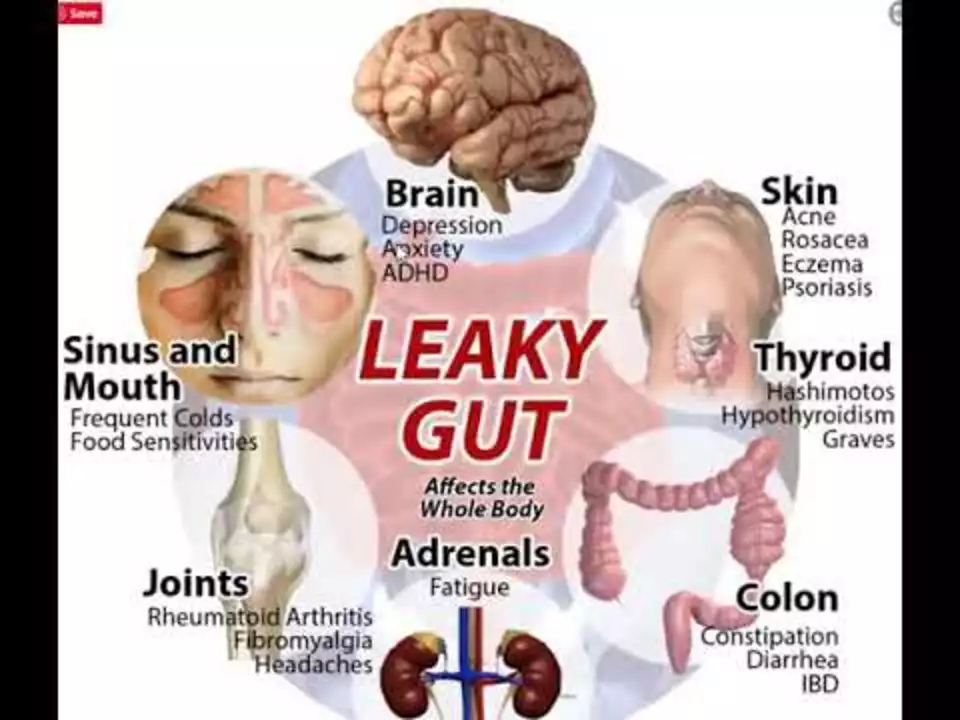Introduction to Estradiol and Gut Health
As a blogger who is passionate about health and wellness, I am always on the lookout for new and exciting information to share with my readers. Recently, I came across a fascinating link between hormones, specifically estradiol, and gut health. In this article, I will delve deeper into this connection and explore how estradiol impacts our digestion and overall well-being. So, let's dive in and learn more about this hormone and its role in our gut health.
Understanding Estradiol: A Key Hormone in Our Body
Estradiol is a type of estrogen, which is the primary female sex hormone. It plays a crucial role in the development and maintenance of female reproductive tissues, such as the uterus, fallopian tubes, and vagina. Additionally, estradiol has various other functions in the body, including regulating bone health, brain function, and cardiovascular health. While estradiol is primarily considered a female hormone, it is also present in small amounts in men and has essential functions in their bodies as well.
The Importance of Gut Health for Overall Well-being
Our gut health is a vital aspect of our overall well-being. The gut, also known as the gastrointestinal tract, is responsible for breaking down food, absorbing nutrients, and eliminating waste. Moreover, the gut is home to trillions of bacteria, collectively called the gut microbiome, which play a critical role in various aspects of our health, such as immune function, mood regulation, and even weight management. Therefore, maintaining a healthy gut is essential for our overall wellness.
How Estradiol Affects Gut Health
Recent research has uncovered a fascinating connection between hormones like estradiol and gut health. Estradiol has been found to influence the gut microbiome's composition and function, thereby impacting digestion and overall well-being. Some of the ways estradiol affects gut health include:
1. Modulating the Gut Microbiome
Estradiol has been shown to modulate the gut microbiome by promoting the growth of beneficial bacteria and inhibiting the growth of harmful bacteria. This, in turn, helps maintain a balanced and healthy gut environment, which is essential for optimal digestion and overall health.
2. Regulating Gut Inflammation
Estradiol has anti-inflammatory properties and has been found to reduce gut inflammation. This is particularly important as chronic gut inflammation can lead to various gastrointestinal disorders, such as inflammatory bowel disease (IBD) and irritable bowel syndrome (IBS).
3. Maintaining Intestinal Barrier Integrity
The intestinal barrier plays a crucial role in preventing harmful substances, such as toxins and pathogens, from entering the bloodstream. Estradiol has been found to help maintain the integrity of this barrier, thereby protecting us from various health issues related to a leaky gut.
4. Supporting Digestive Motility
Proper digestive motility, or the coordinated movement of muscles in the gastrointestinal tract, is essential for optimal digestion and preventing issues like constipation and diarrhea. Estradiol has been found to promote healthy digestive motility, ensuring that our gut functions smoothly and efficiently.
How Fluctuations in Estradiol Levels Impact Gut Health
As with many hormones, estradiol levels can fluctuate throughout our lives due to various factors, such as age, menstrual cycle, and menopause. These fluctuations can have a significant impact on gut health, leading to digestive issues and other health problems. For example, during menopause, when estradiol levels decline, many women experience gastrointestinal symptoms like bloating, constipation, and diarrhea. Therefore, it is essential to be aware of these hormonal changes and take appropriate steps to maintain gut health.
Ways to Support Gut Health and Maintain Optimal Estradiol Levels
Now that we understand the crucial link between estradiol and gut health, let's explore some ways to support our gut and maintain optimal hormone levels:
1. Eat a Balanced Diet
A healthy diet, rich in whole foods like fruits, vegetables, whole grains, lean proteins, and healthy fats, is essential for maintaining a healthy gut and supporting hormone balance. Consuming fermented foods like yogurt, kefir, and sauerkraut can also help promote a healthy gut microbiome.
2. Manage Stress
Chronic stress can negatively impact both gut health and hormone levels. Incorporating stress management techniques, such as meditation, yoga, and deep breathing exercises, can help promote overall well-being and hormonal balance.
3. Get Regular Exercise
Regular physical activity has been shown to support gut health and hormone balance. Aim for at least 30 minutes of moderate exercise most days of the week, incorporating a mix of cardiovascular and strength training activities.
4. Consider Hormone Replacement Therapy (HRT)
For those experiencing significant hormonal fluctuations, such as during menopause, hormone replacement therapy (HRT) may be an option to consider. HRT can help alleviate symptoms related to hormone imbalances, including gastrointestinal issues. However, it is essential to discuss the risks and benefits with a healthcare professional before starting HRT.
Conclusion: The Vital Connection Between Estradiol and Gut Health
In conclusion, understanding the link between estradiol and gut health is essential for maintaining optimal digestion and overall well-being. By being aware of this connection and taking steps to promote gut health and hormone balance, we can ensure that our bodies function at their best. I hope this article has provided valuable insights into this fascinating topic and inspired you to prioritize your gut health and hormone balance.


Fae Wings
Oh my goodness, reading about estradiol’s secret life in our gut really made my heart flutter! 🌸 It’s like discovering a hidden love story between hormones and bacteria, and I can’t stop smiling. The way you explained the barrier integrity felt like a warm hug for my gastrointestinal hopes. Thank you for shedding light on this delicate dance-it’s seriously #gutfeels. 💫